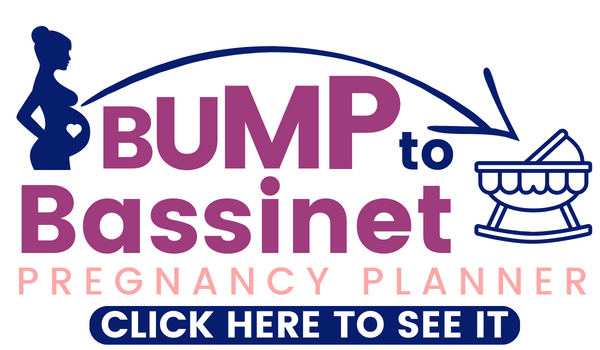Are you anxious to find out if you’re pregnant? The best time of day to take a pregnancy test is first thing in the morning. When you first wake up, your urine is most concentrated and will give you the most accurate results. If you can’t wait to take the test, try to hold off for as long as possible so that you get the most accurate reading. good luck!
But first, how do I know all of this?
Hi — I’m Hilary — The Pregnancy Nurse 👩⚕️. I have been a nurse since 1997 and I have 20 years of OB nursing experience, I am also the curly head behind Pulling Curls and The Online Prenatal Class for Couples. 🩺 I also struggled with infertility for about 3 years with my last baby and took a LOT of tests, so I know how you feel!
When is the Best Time of Day to Take a Pregnancy Test for The Most Accurate Results?
The best time of day to take a pregnancy test is first thing in the morning. When you first wake up, your urine is most concentrated and will give you the most accurate results.
Pro Tip: I have an online pregnancy test that assesses your symptoms and gives you a “result” that’s sort of fun too.
Morning urine is most concentrated and has the highest levels of hCG
If you can’t wait to take the test, try to hold off for as long as possible so that you get the most accurate reading. The longer you wait, the more hCG builds up in your body and the easier it is to detect.
There are a few things that can affect the accuracy of at-home pregnancy tests, so it’s important to follow the instructions carefully. Avoid drinking a lot of fluids before you take the test, as this can dilute your urine and make it harder to detect hCG. Which is why we recommend doing it first thing in the morning for the most accurate results.
That being said, if it’s been over a week since you missed your period, you can likely take the test whenever.
What is HCG?
Human chorionic gonadotropin (hCG) is a hormone that’s produced during pregnancy. It’s made by the cells that form the placenta and is responsible for sustaining the pregnancy by regulating the woman’s metabolism and preventing the breakdown of nutrients.
It can be detected in urine or blood, but it’s most commonly detected in urine using a home pregnancy test. HCG levels can vary from person to person, so it’s important to follow the instructions on the pregnancy test carefully.
If you’re pregnant, your hCG levels will double every two to three days. So if you take a pregnancy test too early, you may not get an accurate result. The best time to take a pregnancy test is after you’ve missed your period.
And yes, we have a spot for that first positive test in here. The BEST time to get started in there is as early as you can — so many fun memories to keep!
How Accurate Are At-Home Pregnancy Tests?
At-home pregnancy tests are about 97% accurate
At-home pregnancy tests are regulated by the Food and Drug Administration (FDA), meaning their accuracy and labeling is evaluated before they reach store shelves.
It’s worth noting that at-home pregnancy tests accuracy claims—many of which advertise an accuracy rate of 99% from the day of the expected period—are based on data used in a sterile laboratory testing environment. In real-world conditions, the accuracy rates are usually lower.
Pro Tip: They really are meant to be taken on the day you would have gotten your period, not earlier. Prior to that HcG is in such low concentration in your urine it will be hard for the test to be sure.
It is MUCH more likely to have a false negative rather than a false positive with at home pregnancy tests.
Are Doctor’s Office Tests Better?
Doctor’s office pregnancy tests are just as accurate as at-home tests
There is a common misconception that doctor’s office pregnancy tests are more accurate than at-home tests. But the truth is, they’re both about 97% accurate. Most doctors offices uses a urine dipstick to check for pregnancy, similar to what you use at home (just purchased in bulk).
Some providers will order a blood test which can watch to see if your HcG is rising, but they are only ordered for special cases. Most often they will say to wait and do a urine test after your missed period.
Heads up! 👀 There may be affiliate links in here – I might earn a smidge with your click. No cost to you, just good vibes! Check my boring stuff for deets.
What Is the Best Brand of Pregnancy Tests?
Many people like the digital nature of tests like this. However, in reality they are just as accurate as cheap tests like these.
Personally, I got my tests at the dollar store because it was convenient (although if amazon was more available back then I probably would’ve just gotten these).
Early Testing Means Early Prenatal Care
Prenatal care is important for a healthy pregnancy and can help improve your chances of having a healthy baby.
How early do people normally start prenatal visits?
Prenatal visits usually start around the 8th week of pregnancy. However, some providers may see patients earlier if they are high-risk pregnancies. Prenatal care is important for a healthy pregnancy and can help improve your chances of having a healthy baby.
What Should I Do if My Pregnancy Test is Negative?
If you get a negative result, it may just mean that the test wasn’t sensitive enough to pick up on the hCG levels in your urine.
It could also mean that you aren’t pregnant.
If you think you might be pregnant, wait a few days and try again. If the test is still negative and you’re experiencing pregnancy symptoms, make an appointment with your healthcare provider to confirm the results.
I’d love to follow you through your pregnancy. I even have trying to conceive email segment you can opt into from this one. Let’s get you prepared to have a baby!





 Do I Need to Take a Birthing Class: Is it necessary?
Do I Need to Take a Birthing Class: Is it necessary?
